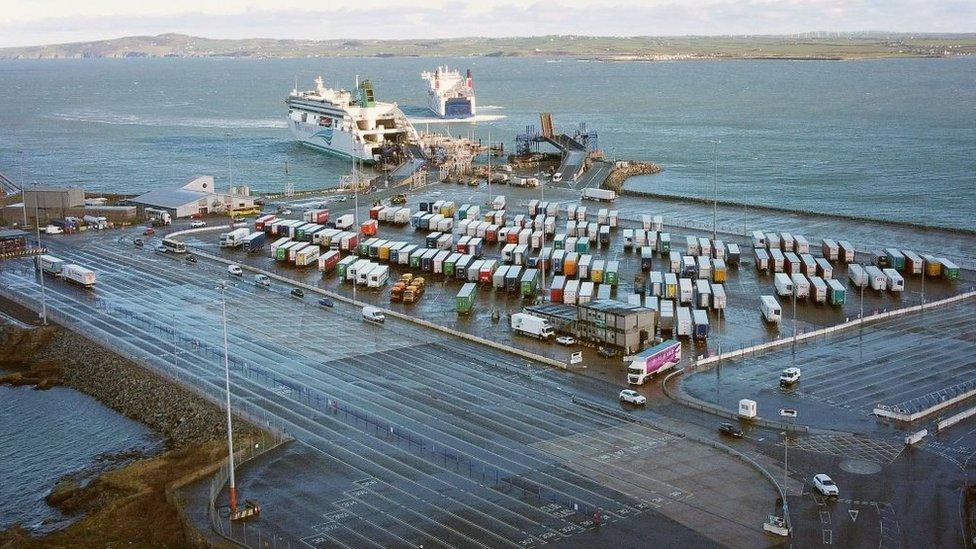Celtic Freeport bid could create 16,000 jobs, say backers
- Published
- comments
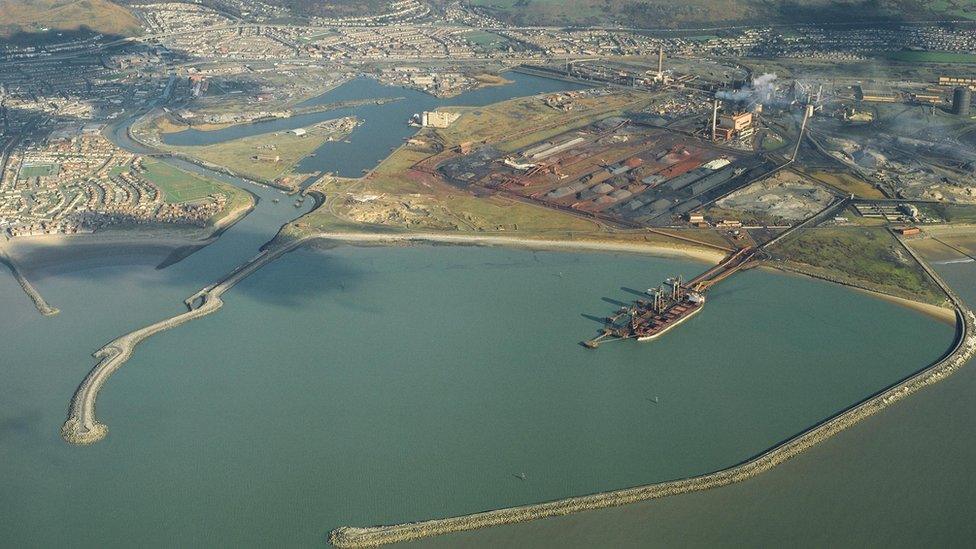
Campaigners for the ports of Milford Haven and Port Talbot to be given freeport status say it could generate billions for the area and create thousands of jobs
Billions of pounds could be generated by granting freeport status to two ports, say the campaign's backers.
The Celtic Freeport bid hopes to see the ports of Milford Haven and Port Talbot given the status, which would see relaxed tax and customs rules.
It also promises to create 16,000 new jobs and reduce Wales' environmentally harmful carbon emissions.
Associated British Ports, Neath Port Talbot and Pembrokeshire councils and Milford Haven port are behind the bid.
The bid is based around maximising the local benefits of a separate plan for a floating off shore wind project in the Celtic Sea.
It is one of three competing to become Wales' first freeport since the 1980s.
What is a Freeport?
Businesses based in the UK have to pay tax and customs tariffs on the goods and materials they import, whereas freeports are areas where usual tax and customs rules are relaxed.
That means businesses within a freeport area can import, manufacture and export goods cheaper and more easily, with normal fees and taxes imposed if those products enter the wider UK market.
Some freeports were created by Margaret Thatcher's government in the 1980s, including one in Cardiff, but they were phased out under David Cameron in 2012.
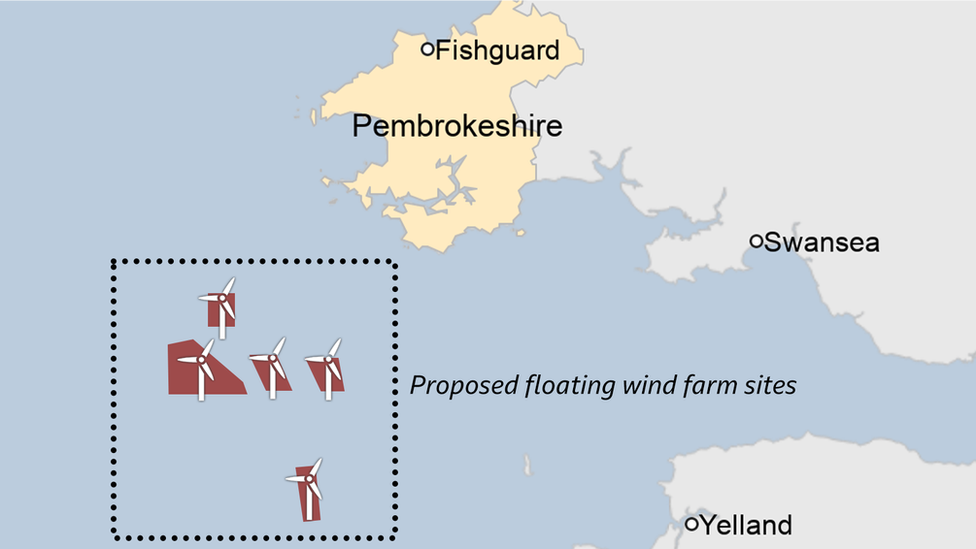
The bid is looking to maximising the local benefits of a planned floating off shore wind project in the Celtic Sea, which the Crown Estate say will create 10,000 jobs in Wales
Supporters of the Celtic Freeport bid said it would create a "green energy corridor" along the south-west coast of Wales, bringing up to £5.5bn of investment to develop green technologies.
Stephen Kinnock, the Labour MP for Aberavon, called it a "game changer" for the region because it would connect the financial advantages of a freeport with the floating offshore wind project in the Celtic Sea.
He said: "We can manufacture the wind turbines using steel from the Port Talbot steel works to drive the green industrial revolution in Wales."
Critics of the freeport system say it encourages companies to relocate existing resources rather than creating new investment, but Stephen Crabb, Conservative MP for Preseli Pembrokeshire, insisted this bid was different.
"It is based on a real industry that is happening now," he said. "Port Talbot and Milford Haven are the best ports in Great Britain for basing a new floating offshore wind industry for the Celtic Sea.
"So by linking that to the freeport bid you actually give us the best opportunity to attract businesses to locate to Wales to be part of this new industry, and make sure that the jobs and the economic value stays in Wales and the UK."
Some firms that are hoping to be part of the floating offshore wind development are also supporting the freeport bid.
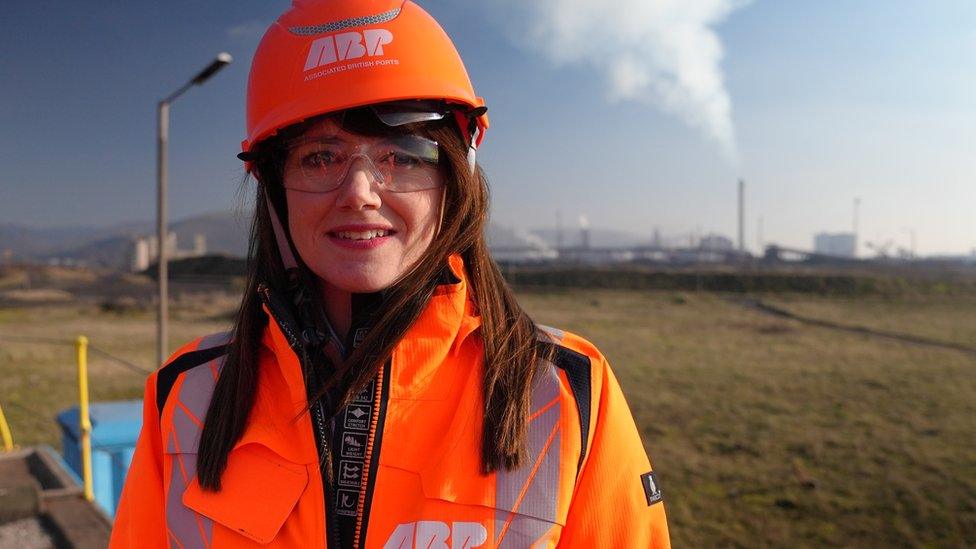
Gwenllian Elias said a Celtic Freeport could be "a key driver of investment" for renewable energy companies
Gwenllian Elias is head of development in the Celtic Sea for renewable energy companies Renatis and Blue Float Energy.
She said a Celtic Freeport could be "a key driver of investment" to "support the development" of local supply chains and "enable skills and training opportunities".
The Labour Senedd member for Aberavon, David Rees, said it "gives an opportunity to local people in Port Talbot and Pembrokeshire to gain from opportunities we haven't seen before".
The Celtic bid is competing with Holyhead and Cardiff airport, which are also promising massive job creation opportunities.
First Minister Mark Drakeford previously said that creating only a single Welsh freeport "is the expectation but two is not impossible and the quality of the bids will be pivotal".
The UK and Welsh governments will make a joint decision in the next few months.

BBC WALES INVESTIGATES: The subjects affecting the lives of people in Wales
A CAREER CHANGE WITH A DIFFERENCE: Police new recruits adapt to life on the beat

Related topics
- Published19 May 2021
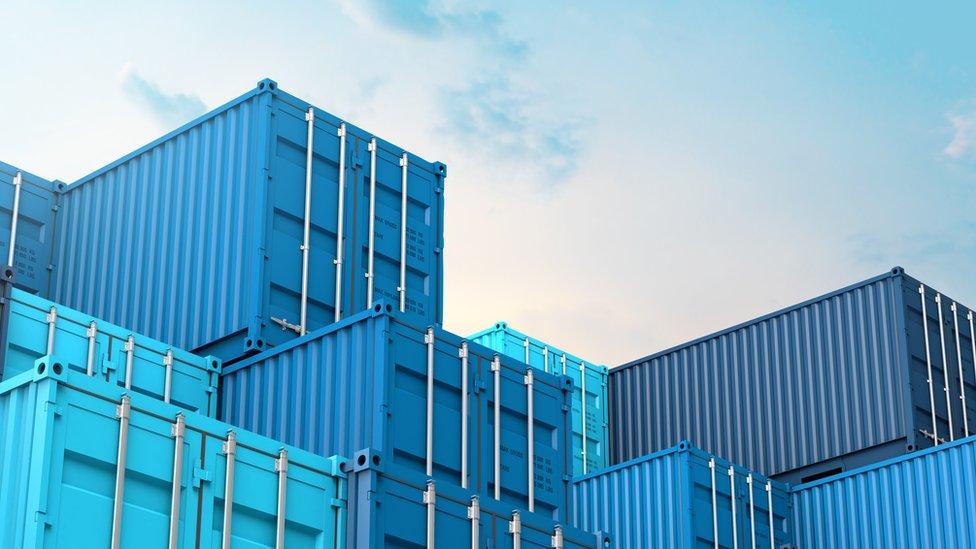
- Published17 June 2021
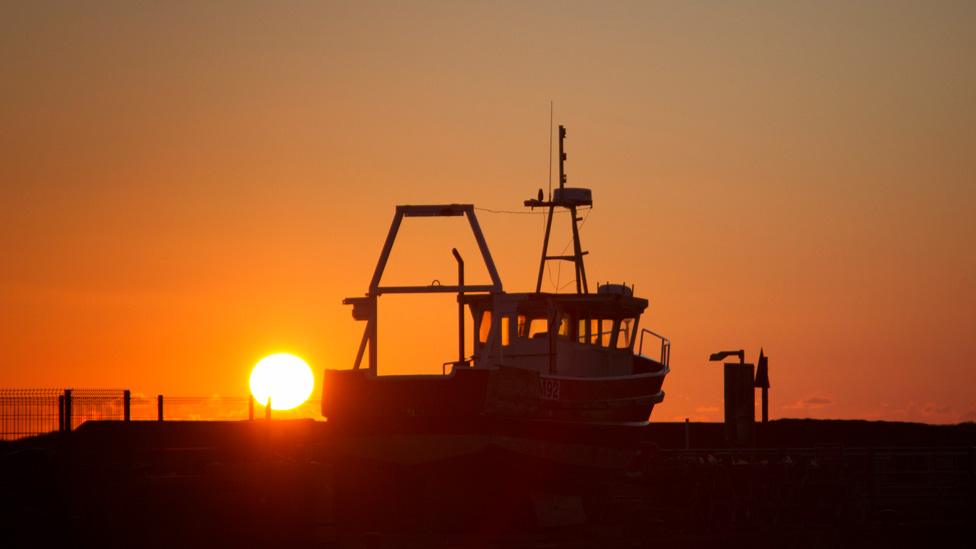
- Published22 March 2023

- Published12 May 2022
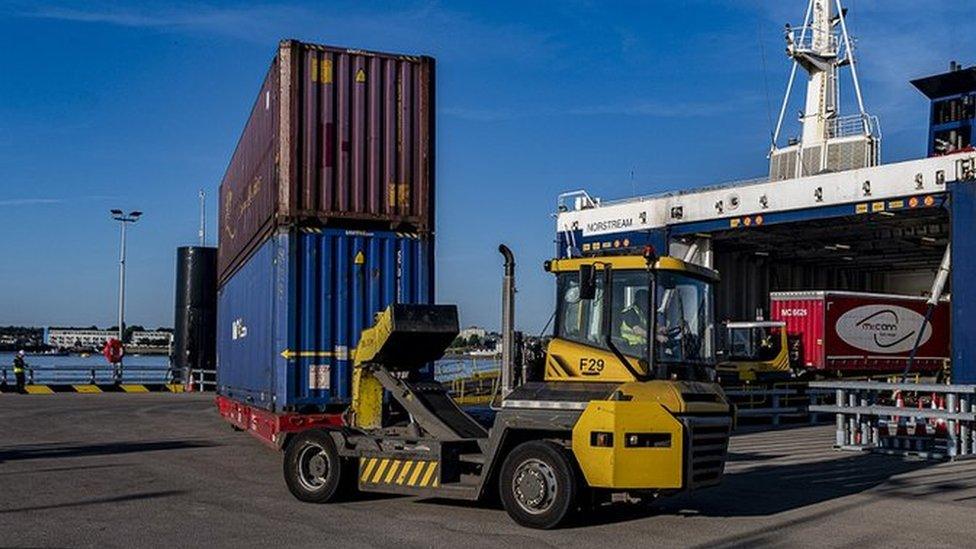
- Published1 September 2022

- Published22 November 2022
